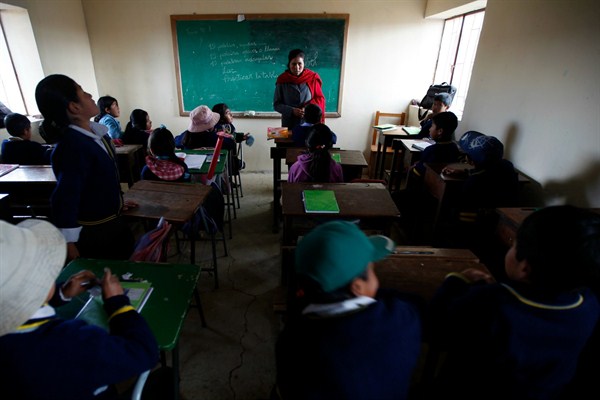Editor’s Note: This article is part of an ongoing WPR series about education policy in various countries around the world.
Evo Morales, Bolivia’s first indigenous president, came to power on the strength of support from indigenous language-speakers who trusted him to combat their longstanding marginalization. However, the president has not always been a stalwart backer of educational reforms intended to expand indigenous language instruction in the country’s schools. In an email interview, Aurolyn Luykx, associate professor of anthropology and teacher education at the University of Texas at El Paso, describes Morales’ evolution on the issue as well as the implementation of a 2010 education reform law that reaffirmed the importance of indigenous languages and culture.
WPR: What was the motivation for the 2010 law requiring that students learn indigenous languages in schools, and how was it received?

